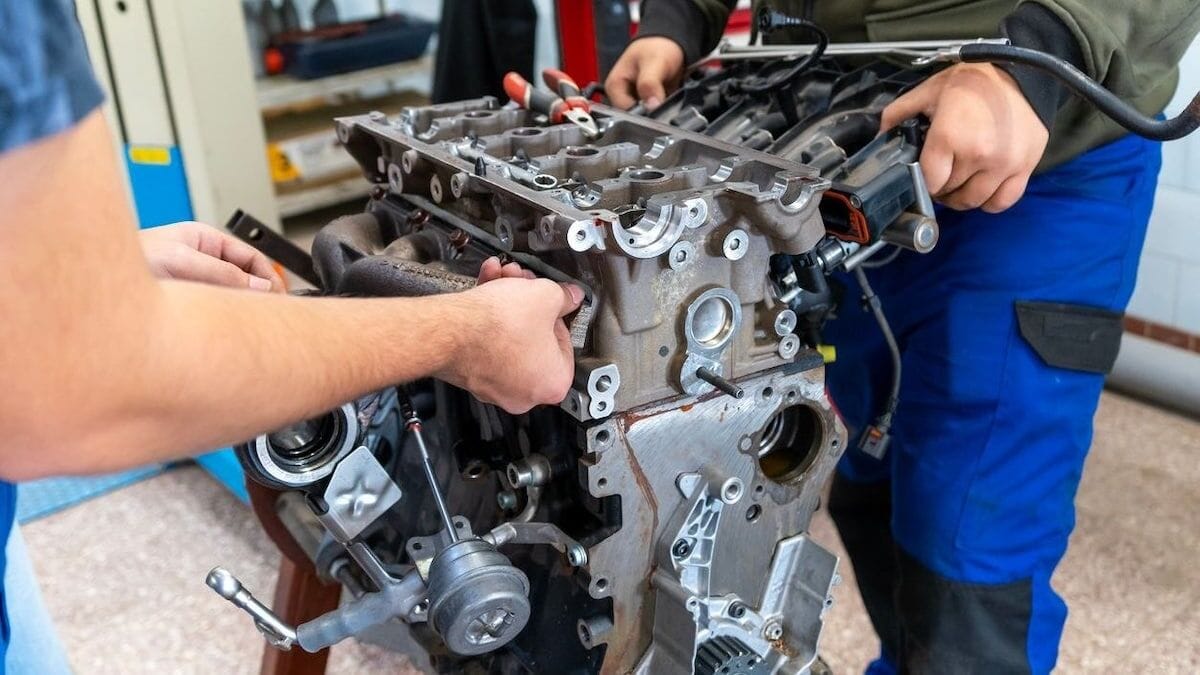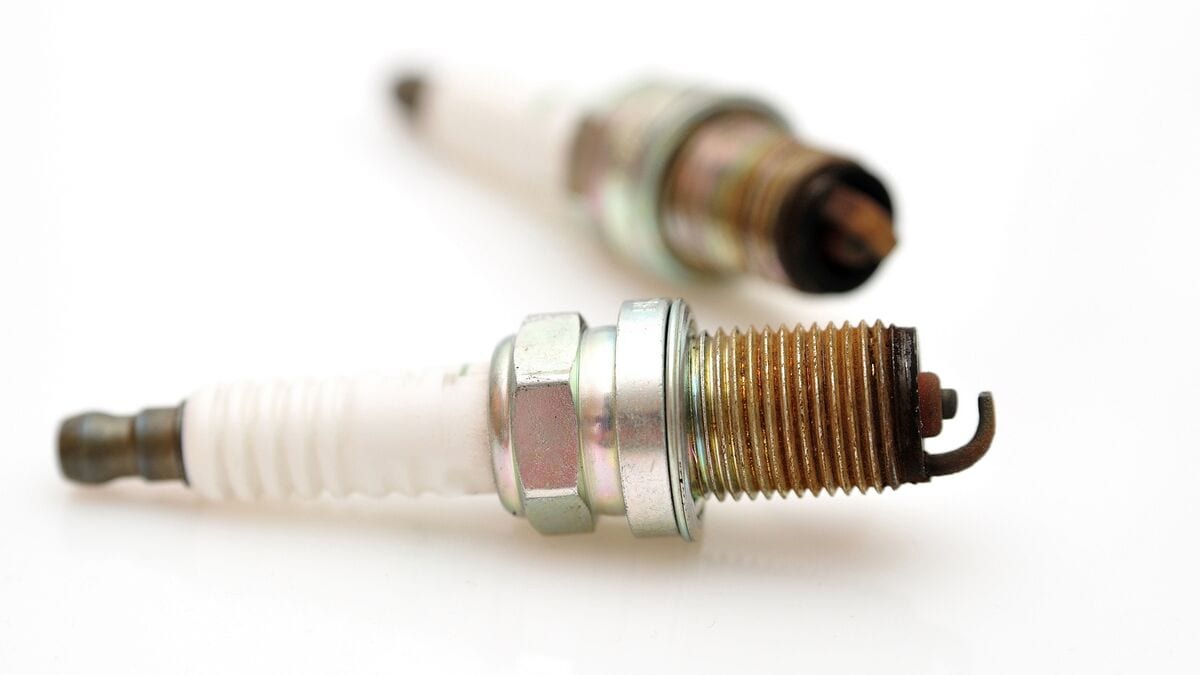Quick Facts About Rebuilt vs. Remanufactured Engines
- Rebuilt engines are a cost-effective option that involves replacing worn or damaged parts, but may offer shorter lifespans and only basic warranties.
- Remanufactured engines have a comprehensive overhaul with new components, providing greater durability and attractive warranty coverage, but at a higher price.
- Engine replacement costs vary widely, so choosing between rebuilt, remanufactured, or new engines depends on your budget, desired longevity, and warranty preferences.
Car engine replacement can be expensive, but having an engine rebuilt or choosing a remanufactured option sometimes makes sense and is cheaper than getting a new vehicle after engine failure. Continue reading to learn about rebuilt versus remanufactured engines, their pros and cons, and whether getting a rebuilt engine is better for your situation.
- What Is a Rebuilt Engine?
- What Is a Remanufactured Engine?
- Which Is Better: a Rebuilt or Remanufactured Engine?
- Engine Replacement Cost
- Bottom Line on Engine Replacement
What Is a Rebuilt Engine?
To rebuild engines, mechanics remove them from the car to disassemble the unit, inspect its components, and clean the parts. The auto shop may reuse serviceable moving parts and replace broken or worn-out ones. But most experts advise against this type of engine reconditioning unless it’s relatively new and you’re confident the engine needs only a few specific replacement parts to fix the current problem.
MORE: Car Maintenance Guide: Everything You Need to Know
How Many Miles Will a Rebuilt Engine Last?
The longevity of an engine rebuild depends on many variables, including the quality of the parts, the level of workmanship, future driving conditions, and follow-up care and maintenance. Many auto shops provide a 12-month/12,000-mile warranty on reconditioned engines.
Pros of a Rebuilt Engine
- Rebuilt engines can help bring some new life to a vehicle with a blown powertrain.
- Rebuilding an engine might proactively address other potential repairs with new parts.
- An engine rebuild cost is typically less expensive than a remanufactured engine.
Cons of a Rebuilt Engine
- A shop that rebuilds engines might choose used parts from a salvage yard over new, high-quality, original parts.
- Mixing new engine parts with the existing or used parts can limit the overall lifespan of a rebuilt engine.
- If offered at all, the limited warranty may not bring peace of mind and confidence in the refurbished unit.
MORE: Car Title Guide: Everything You Need to Know
What Is a Remanufactured Engine?
Remanufactured engines go through extensive overhauls at small factories. Technicians at these facilities tear down engines and remanufacture them to their original standards by re-machining to restore mechanical tolerances and replacing parts with potential wear. Those critical components include new crankshaft bearings, piston rings, seals, gaskets, and much more.
How Long Does a Remanufactured Engine Last?
If correctly done, a remanufactured engine should be as good as a new one and provide many years — and more than 100,000 miles — of driving. Many remanufactured engines have warranties covering multiple years and unlimited miles. Choose an engine remanufacturing company with a good reputation and a long history in business. Check if the company is a member of AERA, the trade association for engine builders, machine shops, and remanufacturers.
Pros of a Remanufactured Engine
- Remanufacturing facilities have standards for engine durability and quality.
- A remanufactured engine has every part replaced and extensive machining to provide a longer service life than rebuilt engines.
- Engines from reputable remanufacturing companies often have attractive warranty coverage.
Cons of a Remanufactured Engine
- Remanufactured engines cost more than their rebuilt counterparts.
MORE: Power Steering Guide: Everything You Need to Know
Which Is Better: a Rebuilt or Remanufactured Engine?
Rebuilt engines and remanufactured engines have benefits and drawbacks. Money is the primary consideration for many car owners, with quality close behind that. Rebuilds typically cost less, but they don’t have to meet the exhaustive standards that most remanufactured engines have. Still, some quality rebuilders offer warranties similar to remanufacturers’ basic coverage.
So, is a remanufactured engine as good as a new one? Many mechanics say it is, especially considering the cost, which can be about 50% less than that of a brand-new engine.
As with any work, ask for documentation. Invoices, parts lists, and warranty certificates can show proof of an engine’s rebuild or remanufacture. Also, get break-in instructions from the shop. Follow the recommended procedure, which may include varying the rpm, retorquing cylinder heads and manifolds, and changing the oil early to replace special “break-in” oils.
MORE: Does My Car Need a New Water Pump?
Engine Replacement Cost
The cost to replace a car’s engine depends on whether it’s rebuilt, remanufactured, or swapped out with a new unit from the automaker. Each type of engine replacement has varying costs depending on size, condition, complexity, and many other factors. Many established shops offer financing for engine swaps. Fluctuating tariff rules for automotive parts can also affect the expense of replacing a car engine.
- A professional engine rebuild is usually the least expensive option, costing between $3,500 and $6,000.
- A remanufactured engine often costs about $5,000 to $9,000 for a mainstream vehicle. If a remanufactured engine is purchased from a third party, the cost of installation could add another $1,200 to $1,500 or more for the day-and-a-half’s worth of labor needed to properly mount the engine in the vehicle.
- New replacement engines are from the automaker’s plants. According to data from Cox Automotive, Kelley Blue Book’s parent company, the average cost for engine replacement at a dealership is close to $8,000. The expense for a high-output engine can be three or four times that amount.
If you’re supplying your own core — the old engine— for a remanufacture job, use that to negotiate the overall price. Shops often pass more than three-quarters of the core refund back to the customer.
Use our repair pricing tool to learn what you should expect to pay to repair your vehicle in your area.
MORE: How Do I Know if My Spark Plugs Need Replacing?
Bottom Line on Engine Replacement
Replacing a car engine can be costly, but choosing a rebuilt or remanufactured engine is often more affordable than buying a new vehicle. Rebuilt engines are cheaper ($3,500-$6,000) and involve replacing only worn parts, but may have shorter lifespans. Remanufactured engines typically cost more ($5,000-$9,000), but are restored to original standards with new components and typically have better durability and offer robust warranty coverage. Your choice should depend on your budget, desired longevity, and warranty needs.
Editor’s Note: This article has been updated since its initial publication.








